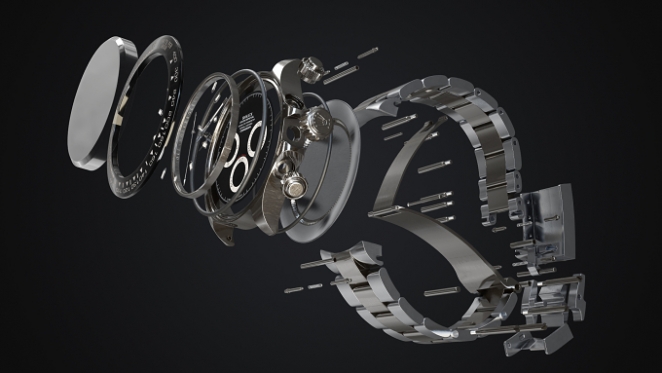In 2015, nearly 40% of the UK’s self-employed workforce did not file their taxes by the HMRC deadline. That accounts for over 890,000 freelancers in the UK, who all faced a £100 late fee. The mere thought of taxes is often nightmare fuel for most freelancers all over the world; it takes our mind away from what matters the most (doing the actual work), it can be boring and it’s often unnecessarily complicated.
Still, it is something every freelancer needs to do, unless they are planning to live comfortably on less than £12,500 per year (I assure you that about £1,000 per month is pretty little). Though it doesn’t mean it needs to be complicated.
In truth, handling your freelance tax can be very simple and straightforward, though there is a bit of a learning curve when you are just getting started. If you are reading this, I assume you are either a new freelancer or planning to become one soon. So, where do we start?
To learn more about the issues surrounding income tax and self-assessment returns, I reached out to Dave Legion, Founder of accounting software TAXO’D, who was so kind as to share his views on the matter. According to Dave, “Nothing very rarely is as scary or as hard as you make it out to be in your head”, and the sheer fact that millions of professionals in the UK are already filing their own taxes should act as some sort of encouragement for you.
Of course running a business is rarely as simple as writing down a few numbers or sending off a bank payment, which is why we’re here today. How can freelancers successfully handle their own taxes? What is something you should absolutely look out for? What are the key concepts? I will do my absolute best to lay them down for you, occasionally assisted by Dave’s kind comments.
Please note that, although most of the notions below apply exclusively to the UK, there will be some overlaps in concepts (and sometimes terminology) with other countries all around the world. If you are not from the UK, feel free to keep reading anyway!
Table of Contents
- Freelance Tax Glossary
- How do freelancers pay tax?
- How to file an income tax return
- Do I need an accountant for that?
- Should I register as a Sole Trader or a Limited Company?
- What if I'm already employed?
- Do I need to register for VAT?
- What expenses can I claim as a freelancer?

Image credit: Adam Gasson
Freelance Tax Glossary
The first thing you need to know about freelance tax is that there is a set of very specific words that you should keep in mind about your self-employed income. These terms are commonly used by HM Revenue & Customs here in the UK and make up a glossary of jargon, on which it will be helpful to expand right away.
These terms are:
- Income Tax
- Personal Allowance
- Income Tax Rate
- Annual Self-Assessment Return
- Payment On Account
- Offset Expenditure
- National Insurance Contributions (NIC)
Additionally, there is a clear distinction between registering as a Sole Trader or a Limited Company. As the topic is rather complex, I will expand on those terms separately, in a full bespoke section of this article.
What is Income Tax?
Income Tax is the amount of tax levied on the income or profits made by individuals in any given tax year. In other words, it is the tax you pay on what you earn during the whole duration of a tax year, which ends in April each year.
Everybody pays income tax, freelancer or otherwise. Employees, however, have it handled by their employer. In the case of employed workers, income tax is taken out of pay packets before salaries are paid. That is the reason why your payslip always comes with a number of deductions. What you receive in your bank account is the amount that is ready to be spent.
Self-employed workers have it differently. A freelancer will pay income tax personally, without going through an employer. Because of this, they may pay a different amount, and they will always pay it in a different way (which we will expand later).
What is Tax-Free Personal Allowance?
In the UK, tax-free personal allowance refers to the amount of income on which you will not pay any tax. This fluctuates around £12,000 at the moment and it is increased regularly. For the current financial year (2021-2022), that amount is £12,570.
This means that you will not pay taxes on the first £12,570 of your income, and anything above that amount will be taxed according to government regulations. For example, given a £25,000 salary:
- £12,570 are tax-free;
- £12,430 are taxed at 20% (the basic tax rate);
- Meaning your income tax for the 2021/2022 fiscal year will be £2,486.
What are Income Tax Rates?
On your taxable income, tax is calculated in “bands” to work out how much you have to pay exactly. Most countries will have higher tax based on how much you earn – the UK is not different. On top of the Personal Allowance amount, there are three Income Tax Rates in the UK:
- Personal Allowance: 0%. This applies to any income from £0 to £12,571 (for the current fiscal year). Income falling within the Personal Allowance band will not be taxed.
- Basic Rate: 20%. This applies to “chunks” of income between £12,571 and £50,270.
- Higher Rate: 40%. This applies to “chunks” of income between £50,271 and £150,000.
- Additional Rate: 45%. Any income above £150,000 will be taxed with this rate.
It may be tricky to start reasoning in “bands” of income, but the concept is rather simple: up until a certain threshold, you pay a certain percentage of tax. Over that threshold, you start paying more.
For instance, given a salary of £60,000:
- The first £12,570 will be tax-free;
- The following £37,430 will be taxed at 20% (meaning you’ll pay £7,486 in taxes);
- The following £10,000 will be taxed at 40% (meaning you’ll pay £4,000 in taxes);
- So, for the 2021/2022 FY, your total income tax would be £11,486. This is how much you will pay with your self-assessment tax return;
- Which leaves you with about £48,500 in disposable income.
This works out to be about £4,000 per month. However, you will have to add other expenses and National Insurance Contributions on top of that, meaning your total will be slightly less than that. We’ll expand on that in a bit.

Image credit: Stephen Berry
What is an Annual Self-Assessment Return?
The Annual Self-Assessment Return is a system used by HMRC to collect income tax. It can be filed online or through a paper form, though deadlines differ in each case.
It has to be filed by a very specific deadline, or you will incur in fines. The deadline for paperwork is usually around 31st October, while the one for online returns is normally 31st January each year. If your business has been affected by the Covid pandemic, you can request an exception to delay the payment – however keep in mind that HMRC will charge interest on late payments, so if you can pay your taxes in time, please do.
Based on the Self-Assessment Return Form, HMRC will calculate your income tax and what you owe based on a number of factors.
How does Payment On Account work?
Payment On Account is an option offered by HMRC to spread the income tax payments over a year, and help struggling freelancers. Self-employed workers can make two payments instead of one, with two separate deadlines to spread the upcoming year’s tax.
Your Payment On Account, however, is only a prediction. It is calculated based on your previous year’s tax bill, meaning that HMRC will predict your future income based on your past one. Each payment is normally 50% of your previous tax bill – but if you underpay and you actually earn more, you will have to pay the difference by the Self-Assessment Return deadline.
The two deadlines are usually the 31st of January and the 31st of July, once every six months. However do note that one of these matches with the deadline for your Annual Self-Assessment Return! Starting-out freelancers may be shocked by the gigantic bill the first time around, as they will have to pay the current year’s taxes as well as a 50% estimate of the next one’s.
This system was designed to help freelancers in theory, but can easily lead to further financial hardship in the long run. Balancing payments can put a strain on a freelancer’s bank account, and the double deadline does not help. Each case is different however, and you may find that this system works for you.
How can you Offset your Expenditure?
Freelancers can claim certain expenses solely related to their business. These include accounting expenses(especially if you hire an accountant or use specialised software), a business phone and more. The HMRC website offers a handy guide to self-employed expenses that can be claimed to reduce your tax bill.
What are National Insurance Contributions?
National Insurance Contributions are mandatory and, as a self-employed worker, only apply to you if you earn more than £6,515 (2021/2022 FY) in a year. Paying these contributions enables you to qualify for certain benefits, including State Pension.
National Insurance Contributions are split in four different classes, which depend on the state of your employment and your income.
- Class 1: this is what employees on PAYE pay. These contributions are paid on employment earnings and they come out of your wage automatically.
- Class 2 and 4: Specific to self-employed workers. Full-time freelancers will pay both.
- Class 3: Voluntary payments. Useful to keep a full NIC record and prevent gaps in your National Insurance, if you haven’t been able to pay for a certain time in the past.
You only pay Class 2 NIC if you earn more than £6,515 in a year. On top of that, you also pay Class 4 NIC if your income is above £9,569 in a year. A full-time freelancer will often earn enough to fit within both classes of contributions.
The rates for Class 2 and 4 are as follows:
- Class 2: £3.05/week
- Class 4: 9% on profits between £9,569 and £50,270; 2% on profits over £50,270
This means that, given a full income of £60,000:
- You do not pay tax on your first £9,569;
- You will pay around £158 for your Class 2 NIC;
- You will pay 9% on the following £40,701 (£3,663) for your Class 4 NIC;
- You will pay 2% on the following £9,730 (£194) for your Class 4 NIC.
- For a total of £4,015 in National Insurance Contributions.
This is on top of your income tax. Earlier, we calculated that the income tax for a £60,000 total income would be £11,486; so in total, your Income Tax + National Insurance Contributions for the 2021/2022 FY would amount to £15,501. This is how much you would pay to HMRC with your Self-Assessment Return, leaving you with £45,499for the current year – roughly £3,791 per month.
If all of this gave you a headache, my friend, know that you are not alone.

Image credit: Hope Veinard
How do freelancers pay tax?
Handling your own taxes can be daunting. As Dave says, “It can take half a decade to become a chartered accountant. In contrast, a freelancer with no previous finance or accounting knowledge needs to become their own personal finance whizz from day one.”
Freelancers hate handling taxes because it is complex and unnecessarily complicated, and it can be incredibly boring – especially if you come from a creative background. “It’s okay for something to be complex, but it doesn’t mean it has to be complicated,” Dave continues. Fortunately, there are steps to improve the current situation: “Tax Digital for Personal Tax will be a big step towards simplifying things for freelancers. This is slated for released in April 2023.”
Now that our handy glossary is out of the way, let’s get into the core of this piece. How do freelancers pay their taxes? How does it work exactly, and what are all the small processes that you should be familiar with?
The first thing you need to know is that PAYE is for employees. Employers handle their employees’ taxes and usually have a dedicated accounts team to work out everything in compliance with government rules. Freelancers, instead, have to file an Annual Self-Assessment Tax Return through the HMRC website – or send in the appropriate paperwork.
To do so, freelancers are required to register for self-assessment when first going self-employed. New freelancers will usually have until 31st October of the following Fiscal Year to register for self-assessment, and there are penalties for doing this late – usually a pretty hefty fine.
How to file an Income Tax Return
Every year, usually around October, a freelancer will receive the much dreaded email or letter from HMRCletting them know that they can file their Self-Assessment Return. You can file at any point from then, and there really is no reason to leave it until the last minute, as most of your income will have been calculated or expected by then.
Still, every year, there are people who consistently miss the deadline, as mentioned in the opening of this piece. Dave says: “You probably think you're the only one who leaves everything until the very last minute to catch up on all your business finances and tax affairs. Take comfort in the fact that, in 2015, one million self-employed people waited until the filing deadline day, and 890,000 missed it, resulting in a £100 automatic late filing fee – that's £89 Million in late filing fees! That's nearly 40% of the UK's self-employed workforce…”

Stunning work from a freelancer in our community. Image credit: Jason Forth
Most professionals will file their taxes online. To do so, you will need a Government Gateway login, which may take some time to set up – so do it with some advance! Once you are ready to file your Self-Assessment Return, you will be asked a series of questions to determine how much you are going to pay for the year. These include inquiries on the nature of your business, any other income (such as foreign income), expenses and your current business income. You will have the option to write expenses as a single figure, or break them down if they are more complicated.
To file a precise and ordered Self-Assessment Return form in time, of course, you will need to be incredibly meticulous about your bookkeeping. You need to keep receipts, invoices and anything that can help you understand your income and expenses over the past year.
There are a number of tools out there that can help you with this, including Dave’s own TAXO’D. You can also rely on an accountant, if you can afford it. “Tax tips don’t work! Get a tax/bookkeeping app or accountant (if you can afford one) from day one (as soon as you see this).” Every freelancer starts off the New Year with all the best intentions – to keep things neatly organised in a spreadsheet, to keep your receipts in a nice binder – and then, those good intentions snowball, leading to a crazy dash to file the income tax return in time. “As soon as you begin trading as a self-employed (freelance or sole trader), start recording your business income and expense activity. You'll save yourself a world of pain. Trust me, I even built an app to do it for me!”, Dave says.
Do I need an accountant for that?
The short answer is that it depends, and it’s mostly reliant on the nature of your business. “Most freelance businesses are pretty straightforward,” Dave says, “but it does depend on the complexity of your business(es). You may have multiple sources of income, such as properties that you let out, or perhaps you hold multiple self-employments. Things can get complicated, and an accountant, in this case, can save you a lot of unnecessary stress and help you to save money.”
Still, Dave recommends using a third party tax software or app alongside your accountant. The main benefit of apps is that it automates your bookkeeping for you, connecting to your bank account and enabling you to snap photos of receipts. TAXO’D is an option, but there are a number of other tools out there that can help you out, including QuickBooks and Coconut. Dave says: “I would search for self-employed or freelance-focused tax apps or accountants, run a few free trials, and see if you find a good fit for your business. If your business(es) are complex, you may need to hire an accountant.”
An accountant will usually charge a fee depending on the size of your business, which can go from as little as £100 per tax return to over £250 per year. Depending on the size of your business, you also have the option to pay a monthly fee to make sure your accountant helps you keep everything in check when needed. The topic of accountants is rather complex in itself, one that perhaps deserves a later article by itself.

Image credit: Laimutė Varkalaitė
Should I register as a Sole Trader or Limited Company?
Freelancers who are just starting out will soon realise that the term “freelancer” has no legal meaning in the UK. Self-employed workers will usually register as either a Sole Trader or a Limited Company. There are considerable differences between each, and each structure has its own advantages and perks.
For one, a Limited Company generally costs more. If you are a Sole Trader you are running your own business as an individual and you are self-employed. You can keep all your profits for yourself, and there is no legal separation between you and your company. This, however, also means that you are personally liable for all activities, including debts. Your personal property is at risk at any time in financial hardship.
You can also rely on less paperwork and things being generally cheaper for you. Accountants will often charge less when dealing with sole traders, while a Limited Company will incur in higher fees. There is less bookkeeping required, less expenses overall, and you can also benefit from a better privacy – as a Sole Trader, you are not required to disclose much information with HMRC.
Things are rather different for Limited Companies. There is more paperwork involved, bookkeeping can be more complex, and you are required to disclose a range of information to Companies House, such as the names of directors and shareholders or annual accounts. This information will be widely available to the public. On the other hand, you have a number of perks that Sole Traders won’t receive.
For instance, Limited Companies are an entirely separate legal entity compared to Sole Traders. Your business will be separate from your person, and you will not be personally liable for company debt – meaning you will not risk your personal property. You will, however, have to comply to specific legal and statutory responsibilities as a company director – something an accountant can easily help you with.
Additionally, you have the potential for greater profitability. As a Limited Company, you will pay Corporation Tax (19% currently) and can pay yourself through dividends and salary, minimising your National Insurance Contributions. You will also be able to claim more business expenses, you will have more borrowing power(independent from your personal credit rating), and you could benefit from the improved reputation, confidence and professionalism that dealing as a Limited Company will give you.
There is no one-size-fits-all answer, and it largely depends on a number of factors, including your annual profit. For freelancers, however, it is common to start out as a Sole Trader and only later start trading as a Limited Company. This can give you the confidence to establish your ground in the market and help you find your feet until you are ready to make the jump.
What if I’m already employed?
If you are already employed full time, all of the above still applies. Your employer will handle your income tax on your salary, as well as your Class 1 National Insurance Contributions – but you will be responsible for paying taxes on your freelance income.
You should let HMRC know as soon as you start trading as a freelancer. This can be as soon as you receive your first income. Following that, you will have until 5th October of the following tax year to register as a Sole Trader or a company – or you risk paying a hefty fine for the delay.
However, you are only required to register with HMRC if your freelance income is above £1,000 in a year. If you expect to earn less than that, you are not required to pay taxes on your income.
There is also the matter of privacy. Depending on the nature of your business, you may not want your employer to know that you are starting to work on separate projects as a freelancer. HMRC will keep everything strictly confidential and they will not inform your employer regardless. However, this works best if you choose to work as a Sole Trader; as mentioned, Limited Companies are required to disclose public information to Companies House, meaning your employer may learn about your side gig one way or another.
When in doubt, don’t lie to your boss!

Image credit: Pablo Ladosa
Do I need to register for VAT?
The short answer is: probably not. Again, this too depends on your business’ turnover.
If your business turnover is over £85,000, then you are legally required to register for VAT and start charging your customers and clients. If you earn less than that amount, it is entirely voluntary, though it can have its perks.
However, registering for VAT is not speedy and it can take up to a month, so make sure to account for that time in your business plans. During that month, you cannot show or charge VAT on your invoice, but you still have to pay it. One solution for you may be to let your clients know that you’ll be charging more, and that you can reissue them with invoices once you receive the VAT number.
Once approved, you will receive a certificate confirming your VAT number and key dates to file your first return and payment. Registering for VAT has a number of perks, including added credibility and professionalism for your business. You will also be able to reclaim VAT on most goods or services purchased from other businesses, and if your customers are VAT registered, they can reclaim the VAT from HMRC.
VAT returns must be filed once every quarter (three months).
What expenses can I claim as a freelancer?
To make the tax bill a bit lighter on your finances, freelancers can claim a number of general and specific expenses, though they must be related to the business.
General expenses include:
- Travel;
- Office supplies and bills;
- Staff salaries;
- Marketing and Websites;
- Training Courses;
- Insurance;
- Vehicles like cars or vans;
- Equipment, such as business phone or computer;
Again, the Government offers a guide to self-employed expenses for your reference.
Additionally, if you work from home, you can claim a number of expenses related to running your business in an home office. If you have devoted one room entirely to being a home office for 5 days a week, you can claim 25% of relevant home costs, including stationery, postage, printing, rent, power and insurance costs.
I’m not sure if I want to be a freelancer anymore…
Don’t panic! It is entirely normal to feel this way, especially if you are just starting out. Running your own business is no mean feat and it takes a huge leap of faith into the unknown. However, as Dave from TAXO’D said: “know that many millions who thought the same scary thoughts as you made the leap and never looked back.”
With time, you may find that the freelance lifestyle is not for you, but at least you’ll have given it a try. As we mentioned earlier: nothing is very rarely as scary or as hard as your head makes you believe.








Gary Meredith August 15th, 2021, in the morning
This article ended just as it was warming up. Was hoping it was going to be a bit more in depth. Still a great read tho.